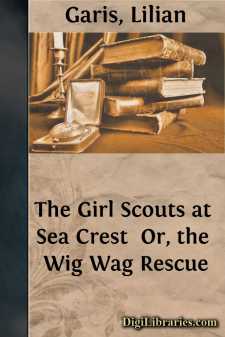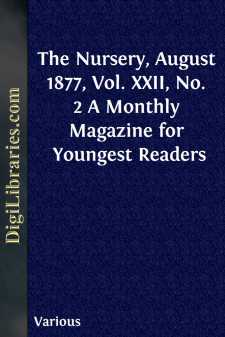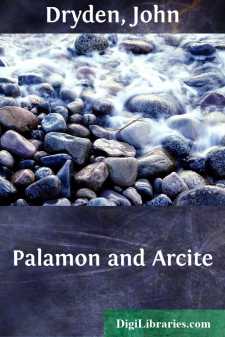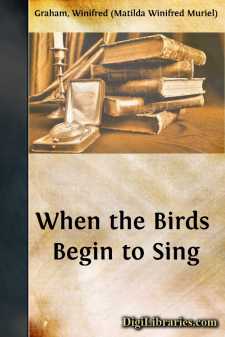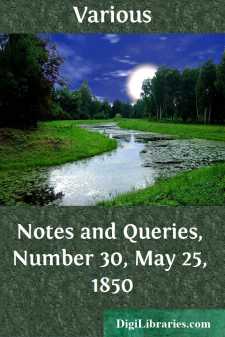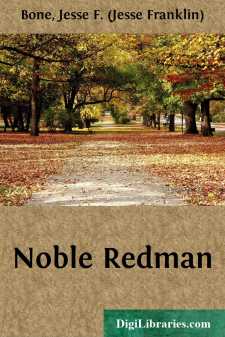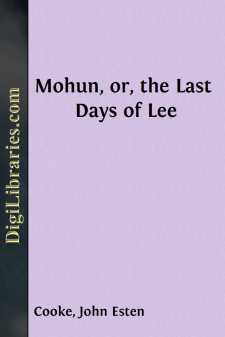Categories
- Antiques & Collectibles 13
- Architecture 36
- Art 48
- Bibles 22
- Biography & Autobiography 813
- Body, Mind & Spirit 142
- Business & Economics 28
- Children's Books 17
- Children's Fiction 14
- Computers 4
- Cooking 94
- Crafts & Hobbies 4
- Drama 346
- Education 46
- Family & Relationships 57
- Fiction 11829
- Games 19
- Gardening 17
- Health & Fitness 34
- History 1377
- House & Home 1
- Humor 147
- Juvenile Fiction 1873
- Juvenile Nonfiction 202
- Language Arts & Disciplines 88
- Law 16
- Literary Collections 686
- Literary Criticism 179
- Mathematics 13
- Medical 41
- Music 40
- Nature 179
- Non-Classifiable 1768
- Performing Arts 7
- Periodicals 1453
- Philosophy 64
- Photography 2
- Poetry 896
- Political Science 203
- Psychology 42
- Reference 154
- Religion 513
- Science 126
- Self-Help 84
- Social Science 81
- Sports & Recreation 34
- Study Aids 3
- Technology & Engineering 59
- Transportation 23
- Travel 463
- True Crime 29
Sort by:
by:
Lilian Garis
CHAPTER I SAME OLD OCEANTHREE girls stood on the beach watching the waves—the tireless, endless, continuous toss, break, splash; toss, break, splash! Always the same climbing combers smoothly traveling in from eternity, mounting their hills to the playful height of liquid summits, then rolling down in an ocean of foam, to splash on the beach into the most alluring of earth's play toys—the...
more...
by:
Various
A DAY AT THE BEACH. HERE are few of the little readers of "The Nursery" who could not tell of pleasant days spent among green fields and woods, or on the seashore. But in almost every large city, there are many children who have never been out of sight of brick walls.Their homes are in close rooms in narrow streets, and there they live from one year's end to the other. In winter they are...
more...
by:
Joseph Dunn
THE ROMANCE OF IRISH HISTORY By SIR ROGER CASEMENT, C.M.G. The history of Ireland remains to be written, for the purpose of Irishmen remains yet to be achieved. The struggle for national realization, begun so many centuries ago, is not ended; and if the long story offers a so frequent record of failure, it offers a continuous appeal to the highest motives and a constant exhibition of a most pathetic...
more...
by:
John Dryden
THE BACKGROUND. The fifty years of Dryden's literary production just fill the last half of the seventeenth century. It was a period bristling with violent political and religious prejudices, provocative of strife that amounted to revolution. Its social life ran the gamut from the severity of the Commonwealth Puritan to the unbridled debauchery of the Restoration Courtier. In literature it...
more...
CHAPTER I. She was certainly very pretty, and just then she looked prettier than usual, for the sharp run had brought a more vivid colour to the cheek, and an added sparkle to the eye. She was laughing, too—the rogue—as well she might, for had she not brought her right hand swiftly down upon his left ear when he had chased her, caught her, and deliberately and maliciously kissed her, and did he not...
more...
by:
Ed Emshwiller
ark knew he shouldn't stop. He was already late for Jennette's birthday party, but the sight of three people out in the open like this was too much. He pulled around and hovered over the undulating flow of glassy magma, frozen on its way to the long, dry Potomac river bed, with its shallow caverns and fascinating mile-wide potholes. Just under an overhanging cliff of half-vitrified soil were...
more...
by:
Various
NOTES DR. JOHNSON AND DR. WARTON. Amongst the poems of the Rev. Thos. Warton, vicar of Basingstoke, who is best remembered as the father of two celebrated sons, is one entitled The Universal Love of Pleasure, commencing— "All human race, from China to Peru, Pleasure, howe'er disguised by art, pursue." &c. &c. Warton died in 1745, and his Poems were published in 1748....
more...
pair of words I heartily detest are noble and redman, particularly when they occur together. Some of my egghead friends from the Hub tell me that I shouldn't, since they're merely an ancient colloquialism used to describe a race of aborigines on the American land mass. The American land mass? Where? Why—on Earth, of course—where would ancestors come from? Yes—I know it's not...
more...
by:
Mor Jokai
CHAPTER I.THE IRON GATE. A mountain-chain, pierced through from base to summit—a gorge four miles in length, walled in by lofty precipices; between their dizzy heights the giant stream of the Old World, the Danube. Did the pressure of this mass of water force a passage for itself, or was the rock riven by subterranean fire? Did Neptune or Vulcan, or both together, execute this supernatural work,...
more...
by:
John Esten Cooke
PROLOGUE. On the wall over the mantel-piece, here in my quiet study at Eagle's-Nest, are two crossed swords. One is a battered old sabre worn at Gettysburg, and Appomattox; the other, a Federal officer's dress sword captured in 1863. It was a mere fancy to place them there, as it was a whim to hang upon that nail yonder, the uniform coat with its stars and braid, which Stuart wore on his...
more...


